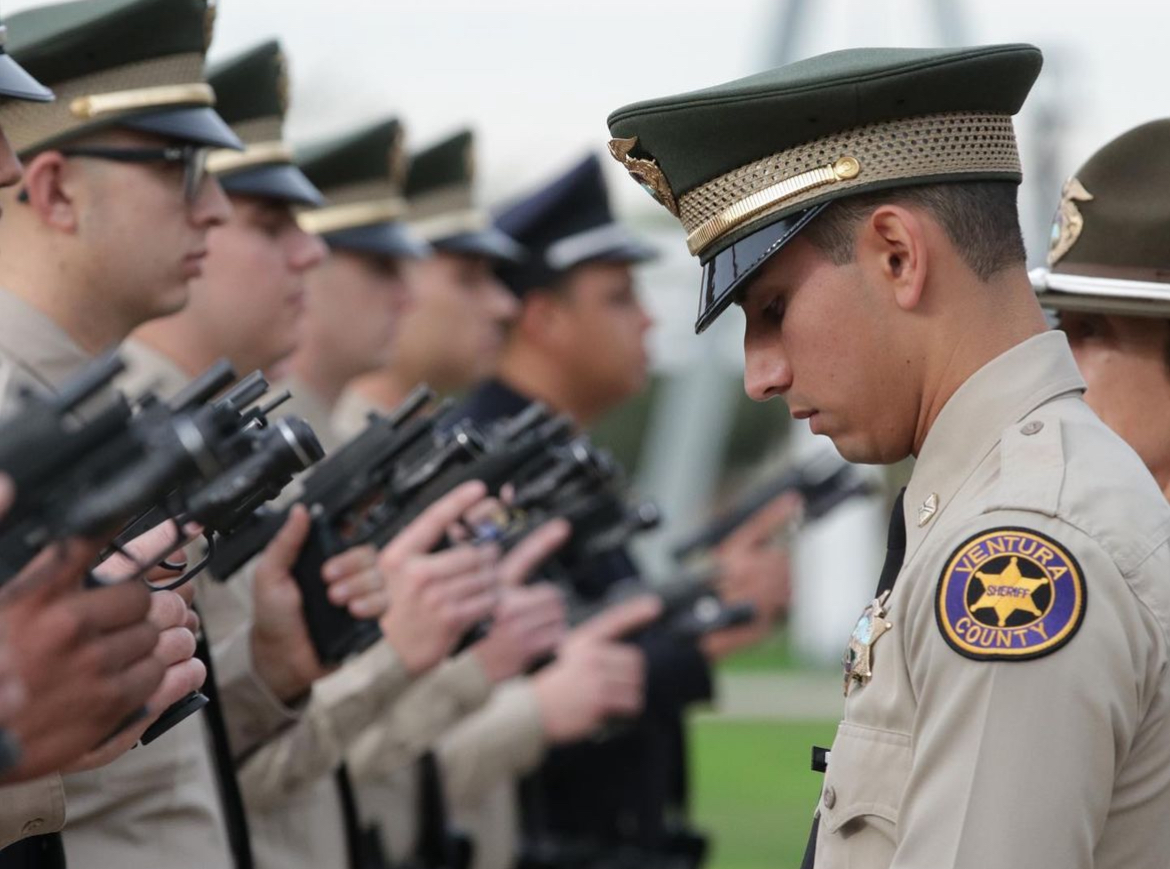I strongly believe that peace officers (sheriff deputies and police officers) need to undergo longer, more extensive training.
My girlfriend recently graduated from the Ventura County Peace Officer Standards & Training Academy, along with 37 of her classmates. Having lived with her, I have seen second-hand what the academy looks like.
The Ventura County POST Academy is one of 20 peace officer academies in California. It runs over the course of about six months and utilizes a stress-based environment. It is one of two POST academies in California that uses a stress-based environment.
Stress environment programs train peace officers to learn in an intense, stressful environment; one that is not unlike what they will experience on the job.
Deputy Sheriff Tim Tovar, class sergeant of the 2022-02 Class said that from his experience, he felt like the academy focused on stress more than anything.
“Definitely focused on stress more than anything,” Tovar said. “Ours is a stress academy. So it’s treated very much like boot camp in the sense that they’re in your face yelling and all that. There’s other academies that are more academic, like Santa Barbara.”
I feel like six months of training is not a lot of time, but Tovar said that the academy is actually shorter in some other states.
“The academy is six months, and I think that that’s pretty long. Compared to other states, six months is a long time. Most other states do anywhere from three months to four months,” Tovar said.
If he could change anything about Ventura County’s POST academy, Tovar said he’d make it less focused on stress-based training, and more focused on academics.
“I would say probably focusing less on the stress part, and more on the academics,” Tovar said. “It’s six months, and I feel like the first three to four months are focused on stress, and just the last two or three months are focused on learning actual policies and procedures… A little less stress and more knowledge,” Tovar said.
I think that considering a majority of the recruits going into the academy are between the ages of 21 and 25, this little training for a career that they expect to do until they retire is a disservice to not only the community but themselves.
Despite the seemingly short academy period, Tovar said that training doesn’t end once you complete the academy.
“Just because you passed the academy doesn’t mean you’re done learning,” Tovar said. “All of that [training], you have to do it every two years.”
An anonymous female recruit who participated in the Ventura County POST Academy said that after just a few weeks in the academy, she decided it wasn’t the right fit for her.
“I had left due to realizing it wasn’t what I wanted for my future… knowing that I did want a family and have kids one day, I felt like it was either going to be this job… or having a family. There was no in-between,” she said.
Due to the stress-based environment, the anonymous female recruit said that she felt changed after the few weeks she was in the academy.
“You’re changed after that,” she said. “I felt like even in the short weeks I was there, you weren’t the same… your whole thought process and just your life was just changing.”
Experiencing the academy was something the anonymous female recruit said she always wanted to do, and she’s glad that she had the chance to experience it.
“Definitely a learning experience and I don’t regret ever going in there. I’m definitely glad I did. It was always something I wanted to try, but ultimately it wasn’t the right path for myself,” she said.
The anonymous female recruit was able to experience what is, in my opinion, the hardest weeks of the academy. With that in mind, she still believes that there needs to be longer training.
“I definitely think that they need more [training]… I think there would need to be some type of training prior to even getting more hands-on, and being in more of an academy situation like what we were in,” she said. “A two-week pre-academy to prep you for the running and to know how to do a memo – I don’t feel like that is enough at all.”
An example of how short some of the training is: According to the Learning Domains, as of October 2023, the minimum amount of time spent hourly on learning Firearms/Chemical Agents is 72 hours.
According to The Ventura County POST Academy Admission Requirements and Information, the conditions that are required to become a peace officer are: A U.S. citizen, 18 or 21 years of age dependent on the law enforcement department, criminal history search, background investigations into moral character, and a medical exam studying physical, emotional, and mental condition.
One can argue that right now is one of the most controversial times to wear a badge and serve the community. There are fewer and fewer people joining the academy because people no longer want to be peace officers due to the poor media and societal view of what it means to be a “cop.”
I believe that we should put more time into creating more extensive, better training programs for these peace officers who have the courage to step up and fill a role that so few people are cut out for.













